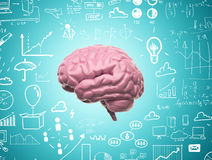 But maybe it doesn’t matter. For example, as British Psychological Society’s Research Digest’s editor, Christian Jarrett, tells it,
But maybe it doesn’t matter. For example, as British Psychological Society’s Research Digest’s editor, Christian Jarrett, tells it,
Educational neuromyths include the idea that we learn more effectively when taught via our preferred “learning style”, such as auditory or visual or kinesthetic … the claim that we use only 10 per cent of our brains; and the idea we can be categorised into left-brain and right-brain learners. Belief in such myths is rife among teachers around the world, according to several surveys published over the last ten years. But does this matter? Are the myths actually harmful to teaching? The researchers who conducted the surveys believe so… But now this view has been challenged by a team at the University of Melbourne, led by Jared Horvath, who have pointed out that this is merely an assumption: “Put simply,” they write in their new paper in Frontiers in Psychology, “there is no evidence to suggest neuromyths have any impact whatsoever on teacher efficacy or practice”.
Large numbers of educated people believe neuroscience myths, he says including myths about learning styles… More.
See also, at Mind Matters Today:
Are social media companies violating anti-trust laws? DOJ to investigate The efforts of social media companies to meddle in politics may now be getting pushback from politicians
Senior Google scientist quits over Google’s censorship in China Some believe that any censorship system that a human being can develop can somehow be got around by another human being. China may provide a way of testing that.
Twitter doesn’t just seem out of control. It actually is.